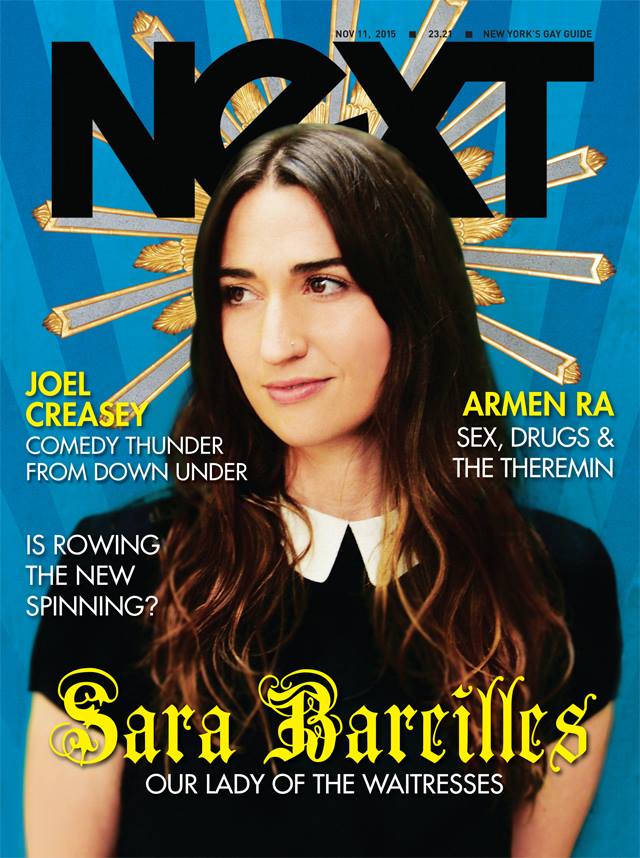
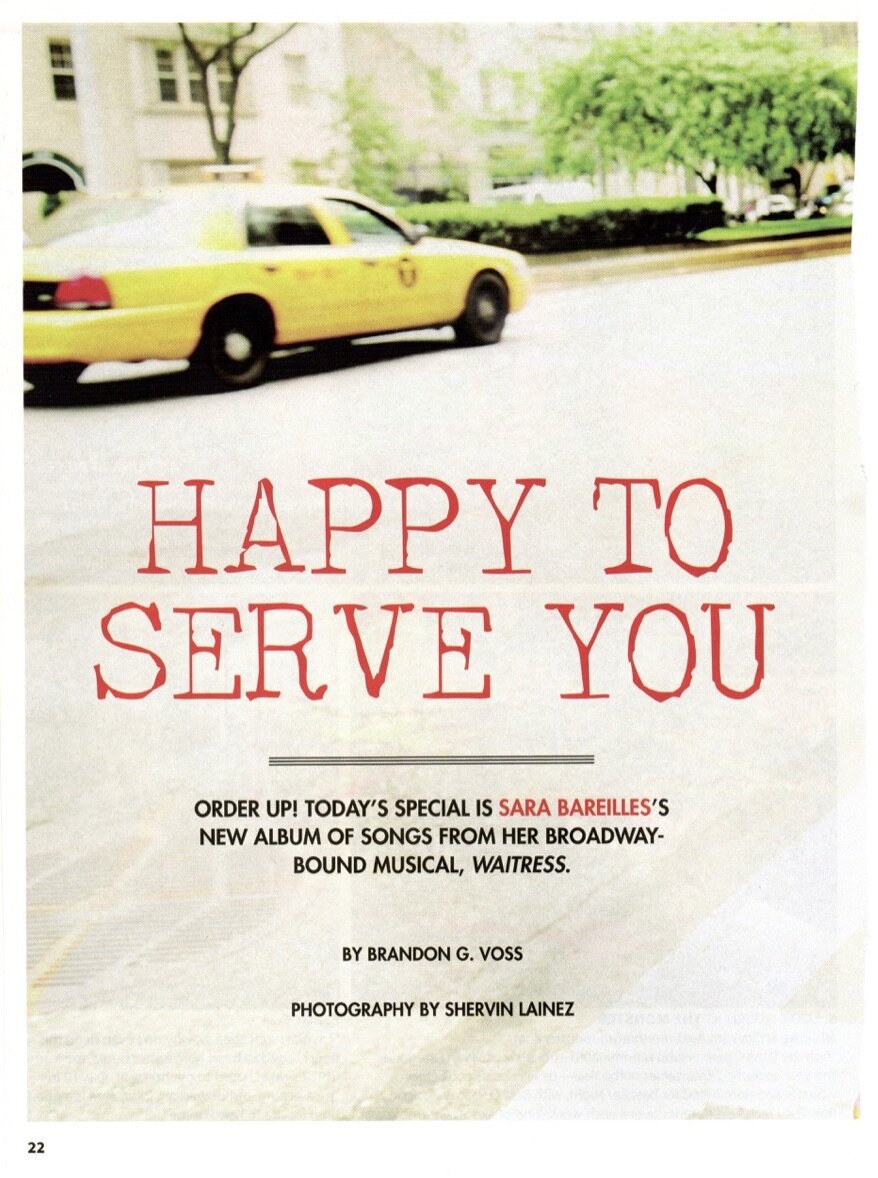
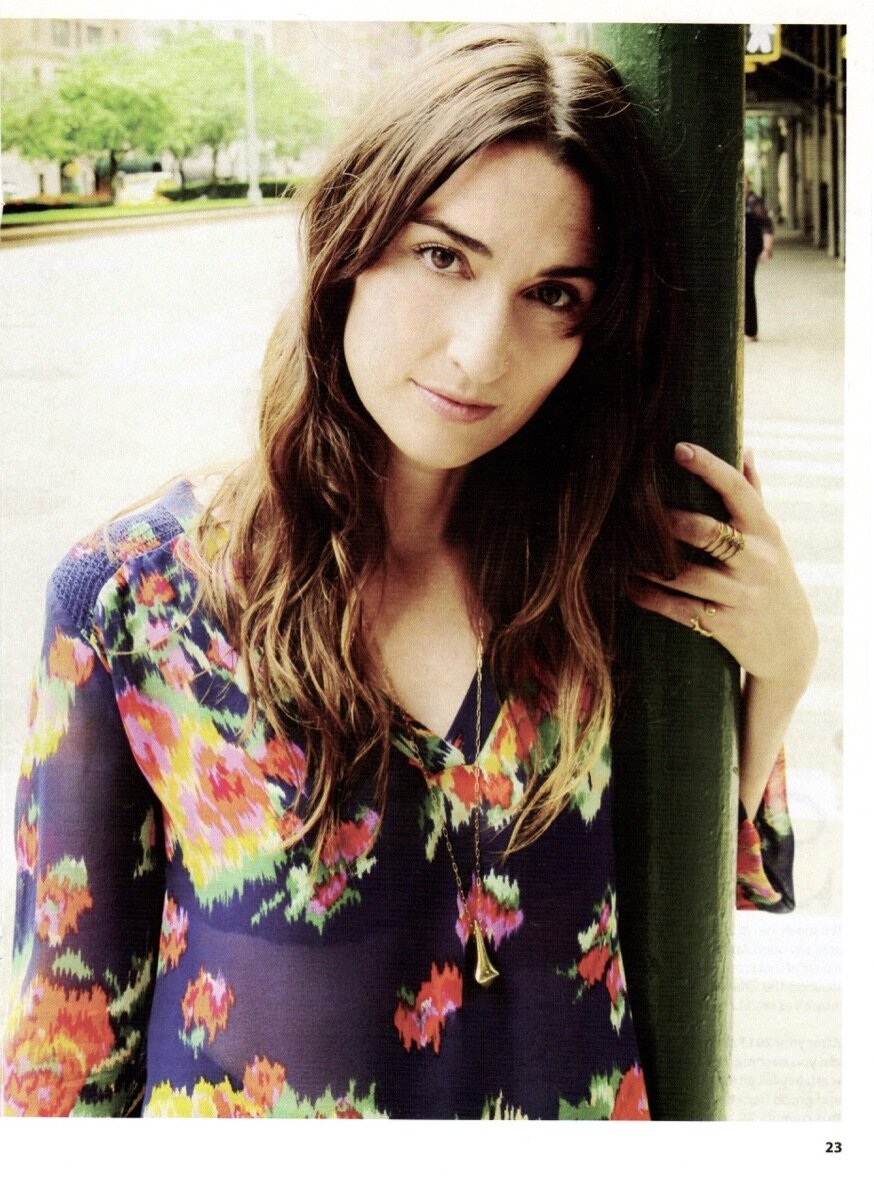
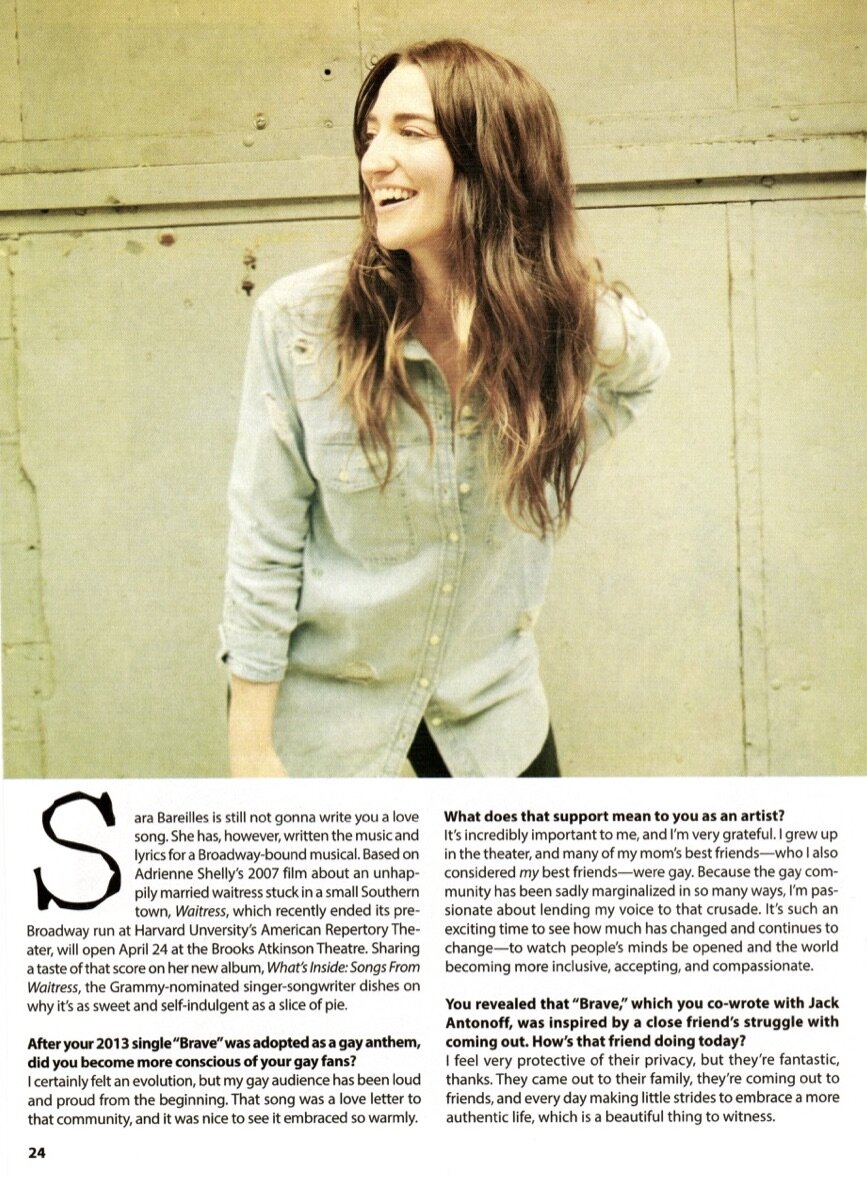
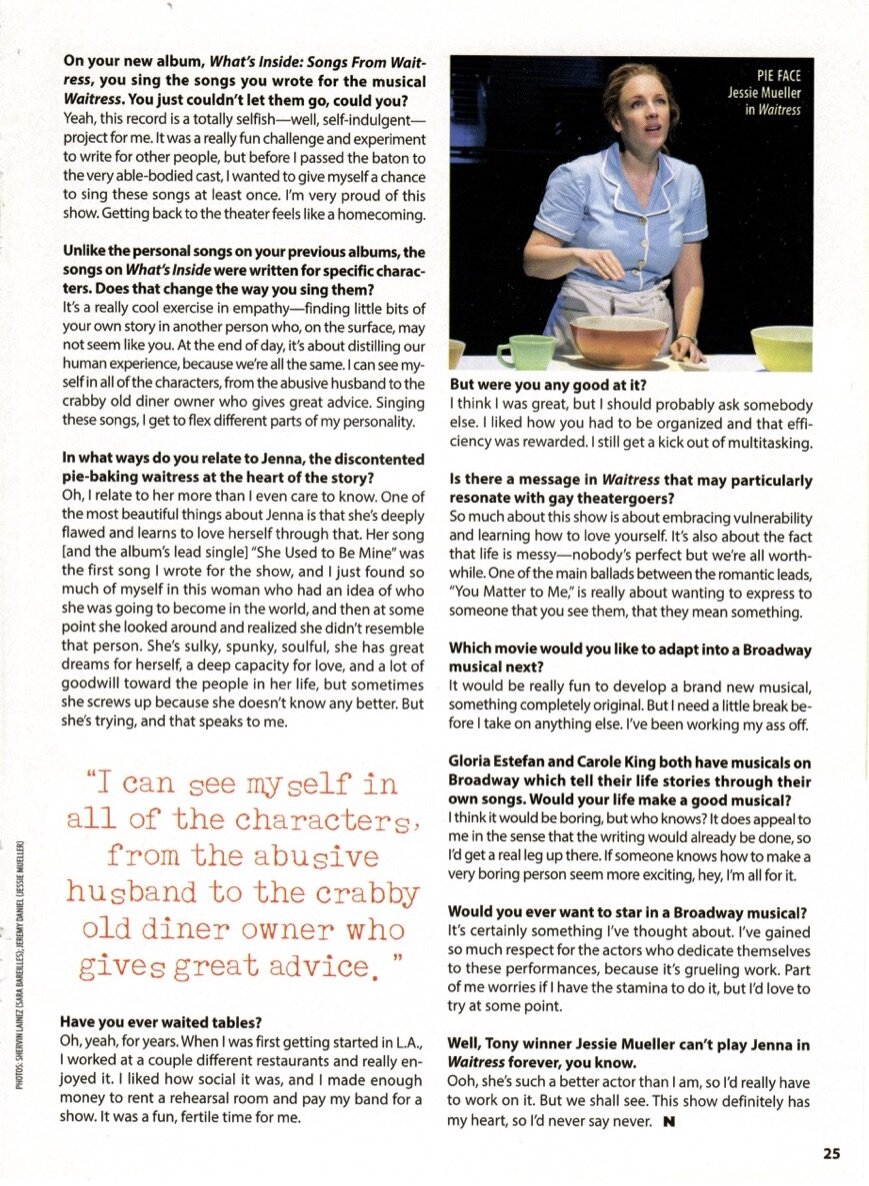
Order up! Today’s special is Sara Bareilles' new album of songs from her Broadway-bound musical, Waitress.
By Brandon Voss
Sara Bareilles is still not gonna write you a love song. She has, however, written the music and lyrics for a Broadway-bound musical. Based on Adrienne Shelly’s 2007 film about an unhappily married waitress stuck in a small Southern town, Waitress, which recently ended its pre-Broadway run at Harvard University’s American Repertory Theater, will open April 24 at the Brooks Atkinson Theatre. Sharing a taste of that score on her new album, What’s Inside: Songs From Waitress, the Grammy-nominated singer-songwriter dishes on why it’s as sweet and self-indulgent as a slice of pie.
Next: After your 2013 single “Brave” was adopted as a gay anthem, did you become more conscious of your gay fans?
Sara Bareilles: I certainly felt an evolution, but my gay audience has been loud and proud from the beginning. That song was a love letter to that community, and it was nice to see it embraced so warmly.
What does that support mean to you as an artist?
It’s incredibly important to me, and I’m very grateful. I grew up in the theater, and many of my mom’s best friends — who I also considered my best friends — were gay. Because the gay community has been sadly marginalized in so many ways, I’m passionate about lending my voice to that crusade. It’s such an exciting time to see how much has changed and continues to change — to watch people’s minds be opened and the world becoming more inclusive, accepting, and compassionate.
You revealed that “Brave,” which you co-wrote with Jack Antonoff, was inspired by a close friend’s struggle with coming out. How’s that friend doing today?
I feel very protective of their privacy, but they’re fantastic, thanks. They came out to their family, they’re coming out to friends, and every day making little strides to embrace a more authentic life, which is a beautiful thing to witness.
On your new album, What’s Inside: Songs From Waitress, you sing the songs you wrote for the musical Waitress. You just couldn’t let them go, could you?
Yeah, this record is a totally selfish — well, self-indulgent — project for me. It was a really fun challenge and experiment to write for other people, but before I passed the baton to the very able-bodied cast, I wanted to give myself a chance to sing these songs at least once. I’m very proud of this show. Getting back to the theater feels like a homecoming.
Unlike the personal songs on your previous albums, the songs on What’s Inside were written for specific characters. Does that change the way you sing them?
It’s a really cool exercise in empathy — finding little bits of your own story in another person who, on the surface, may not seem like you. At the end of day, it’s about distilling our human experience, because we’re all the same. I can see myself in all of the characters, from the abusive husband to the crabby old diner owner who gives great advice. Singing these songs, I get to flex different parts of my personality.
In what ways do you relate to Jenna, the discontented pie-baking waitress at the heart of the story?
Oh, I relate to her more than I even care to know. One of the most beautiful things about Jenna is that she’s deeply flawed and learns to love herself through that. Her song [and the album’s lead single] “She Used to Be Mine” was the first song I wrote for the show, and I just found so much of myself in this woman who had an idea of who she was going to become in the world, and then at some point she looked around and realized she didn’t resemble that person. She’s sulky, spunky, soulful, she has great dreams for herself, a deep capacity for love, and a lot of goodwill toward the people in her life, but sometimes she screws up because she doesn’t know any better. But she’s trying, and that speaks to me.
Have you ever waited tables?
Oh, yeah, for years. When I was first getting started in L.A., I worked at a couple different restaurants and really enjoyed it. I liked how social it was, and I made enough money to rent a rehearsal room and pay my band for a show. It was a fun, fertile time for me.
But were you any good at it?
I think I was great, but I should probably ask somebody else. I liked how you had to be organized and that efficiency was rewarded. I still get a kick out of multitasking.
Is there a message in Waitress that may particularly resonate with gay theatergoers?
So much about this show is about embracing vulnerability and learning how to love yourself. It’s also about the fact that life is messy — nobody’s perfect but we’re all worthwhile. One of the main ballads between the romantic leads, “You Matter to Me,” is really about wanting to express to someone that you see them, that they mean something.
Which movie would you like to adapt into a Broadway musical next?
It would be really fun to develop a brand new musical, something completely original. But I need a little break before I take on anything else. I’ve been working my ass off.
Gloria Estefan and Carole King both have musicals on Broadway which tell their life stories through their own songs. Would your life make a good musical?
I think it would be boring, but who knows? It does appeal to me in the sense that the writing would already be done, so I’d get a real leg up there. If someone knows how to make a very boring person seem more exciting, hey, I’m all for it.
Would you ever want to star in a Broadway musical?
It’s certainly something I’ve thought about. I’ve gained so much respect for the actors who dedicate themselves to these performances, because it’s grueling work. Part of me worries if I have the stamina to do it, but I’d love to try at some point.
Well, Tony winner Jessie Mueller can’t play Jenna in Waitress forever, you know.
Ooh, she’s such a better actor than I am, so I’d really have to work on it. But we shall see. This show definitely has my heart, so I’d never say never.
Next, November 2015.
